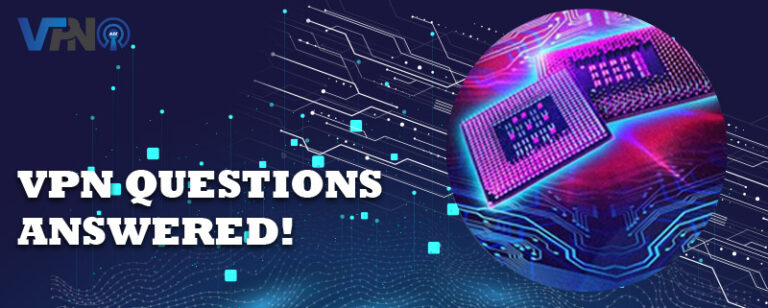Should Remote Workers Use a VPN? (+video)
If you’re a remote worker, you may be wondering if a VPN is necessary. Many remote workers live in different locations, which comes with its own set of extra costs. However, a VPN can help you cut back on these costs and stay connected while traveling. These benefits of a VPN make it an important choice for remote workers. You can decide if you want to use a free VPN or a premium one.

2. PIA - Ton of servers world wide, but especially great in United States.***

3. NordVPN - The bigger the better! A great choice everywhere!***

4. ExpressVPN - Trusted by millions in over 180 countries!***

5. SurfShark - Amazing deal right now!***

6. PrivadoVPN - Exclusive deal - Cheapest 1 year deal online - ONLY through this link***

*** Offers money-back guarantee. So try them risk free!
Site-to-Site VPN
If you have employees who work in different locations, a site-to-site VPN is a viable solution. This VPN allows employees to share data locally and gives your organization more control over your business. It can also limit access to certain network resources that can only be accessed from a specific site or office. This type of VPN is ideal for expanding your business without the need to add systems or connect every new device.
The use of a Site-to-Site VPN for remote workers can also be cost-effective. It allows you to pay a subscription fee to a third-party provider, ensuring a stable, low-latency experience for remote workers. The cost of the VPN is predictable, and it is also transparent about the hardware used by the service. In addition, a Site-to-Site VPN provider can help your company reduce the cost of VPN hosting.
There are two types of Site-to-Site VPNs: intranet and extranet. The intranet type combines multiple office LANs into a private network. The extranet version connects the company’s LAN to other companies. This type of VPN can also be used to share information with partners while keeping the internal network secure. There is no need to worry about a firewall between remote sites and headquarters.
A Site-to-Site VPN is best for organizations that prioritize the security of private traffic. This is especially true in organizations that have multiple offices in different locations. This type of VPN allows remote workers to access primary network resources, such as email servers or data servers. A server can also be the operational hub for an application. When two sites are connected to each other via a Site-to-Site VPN, all sites can access this application, which can make remote work much easier and more secure.
A Site-to-Site VPN uses a standard encryption key to encrypt traffic. You’ll need to configure a shared secret on both devices. This way, both devices can use the same encryption key and access the network. Once you’re connected, you’ll have access to your office network without any hassle. You can even use Site-to-Site VPN for remote workers from your home. It’s the best option for remote workers, as it offers high security and flexibility.
Client server VPN
One of the most common concerns when it comes to working from home is security. Even if your office is completely secure, you might be vulnerable to cybercriminals. There are several reasons why organizations would prefer to keep their employees under one roof. For one, remote work creates an avenue for cybercriminals to access sensitive information. One criminal standing nearby can easily hack into your home computer and steal sensitive data and passwords. As a result, using a VPN is vital to your organization’s security.
The next step in setting up a client server VPN for remote workers is to choose the right software. Depending on which VPN provider you use, you may want to choose software that automatically runs after you install it. Otherwise, you may not use it often, so choosing a VPN service that launches only when you need it is ideal. Also, you can select a preferred server to connect to. To choose a server, you can set it up as your default, and even add it to your favorites list.
In addition to protecting your data, a client server VPN allows remote workers to access corporate resources, including files, databases, and applications. These resources may be located on the internal network and require special authentication. In the healthcare industry, many clients use an Electronic Medical Record (EMR) system, which requires a secure VPN connection. Therefore, a client server VPN is a must for those working from home. You’ll be glad you did.
Using a remote access VPN is a great solution for many companies that operate from multiple locations. It is easy to set up and allows your remote workers to connect to your internal network as if they were on your premises. This ensures that sensitive information is protected and secure. VPNs are a vital part of your organization, and they can help you avoid many security concerns. It is also the best solution for companies that want to ensure the security of their data.
While choosing a client server VPN for remote workers solution, it’s important to choose one that will integrate with your existing directory. For example, if you use ActiveDirectory or Azure AD for user authentication, look for a solution that can integrate with them. Another feature that you should look for is a VPN that lets you limit the amount of access each employee has to the network. For example, a marketing team shouldn’t have access to system infrastructure or supply chain management tools.
Is a VPN a must for remote workers?
For businesses that use remote workers, a VPN is an essential part of the technology infrastructure. VPNs enable employees to securely access the company network and work from anywhere. They can securely access sensitive data and files, such as customer details, payroll details, and HR systems. Using a VPN helps employees stay secure and increase their productivity. A VPN also helps organizations avoid bandwidth throttling, a major problem for businesses that rely on remote workers.
Another reason why VPNs are essential for remote workers is the security they provide. Many people have been compromised while working from home, so remote workers need to make sure they’re protected. A VPN protects their data against hackers using sniffer software and other malicious software. The company also needs a strong network to protect data and prevent data leakage. A VPN also prevents unauthorized users from accessing confidential or sensitive information.
Another benefit of a VPN is the cost savings. It’s a lot cheaper to implement a VPN in your home than to drive to work every day. Besides being more convenient, you’ll also avoid wasting money on traffic, missed meetings, and stressful queries. You can even save money on energy by avoiding commuting. By avoiding these costs, you’ll be able to work from home more efficiently.
A VPN also keeps sensitive company information safe. Because remote workers often access confidential company information on the internet, a VPN can protect these data from spying agents. Using a VPN allows remote workers to access the company’s server and data without worrying about bandwidth throttling. VPNs are essential for remote workers, especially those who work from home. A VPN is essential to ensure security while staying productive. The convenience of working from home can’t be overemphasized, and a secure VPN can provide the peace of mind needed to stay productive.
When choosing a VPN provider, it’s important to choose a secure, reputable company that provides the service. VPNs should be able to protect data in real time. Also, never use a VPN provider that allows peer-to-peer connections. This can allow third-party clients to install back doors and access network data. Rather, opt for a VPN provider that offers direct access to the server.
Is a VPN safer than a premium VPN?
Using a VPN is one of the best security tools available for the average user. A VPN can protect you from hackers and prevents websites from tracking your activity. It can also help you bypass geo-restrictions so you can access content in other countries. A VPN also prevents advertisers and third-party sites from accessing your browsing data. However, using a VPN does not offer 100% protection. In some cases, you might need to pause the VPN while you’re using local content or nearby devices.
Another advantage of a VPN is that it protects your privacy and security. Unlike open Wi-Fi networks, VPNs encrypt your traffic with military-grade ciphers to prevent hacking. It also prevents DNS and IP leaks, so it’s impossible for someone to track your browsing activity. If you’re using a public computer, provided by your school or employer, you’re at risk of having your browsing history monitored.
A VPN also protects against identity theft, a problem that affects the privacy of users worldwide. Identity thieves can use stolen information to open new accounts, file tax returns, and rent property. A VPN protects against identity theft by creating an encrypted tunnel for your data. Unfortunately, Wi-Fi is open to cyberthieves, and even the Wi-Fi on your smartphone can be vulnerable. As a result, it’s important to protect your information by using a VPN.
While the security of a premium VPN is greater, the free version has many drawbacks. A free VPN will not offer the same security as a premium VPN, but it will give you the privacy you need while browsing the web. For example, it will allow you to access Netflix outside of your country. If you’re worried about phishing, a VPN will protect your identity and prevent your identity from being traced by third parties.
VPN Comparison 2024
| Company | 1 Month | 6 Months | 1 Year | 2 Year | 3 Year | - |
|---|---|---|---|---|---|---|
| CyberGhost | $12,99 | $6,99 | - | $2,19 | - | Visit Website |
| NordVPN | $11,99 | - | $4,99 | $3,69 | - | Visit Website |
| PIA | $11,99 | - | $3,3 | 2024 Deal right now: $2,03 (Doesn't get cheaper!) | $2,03 | Visit Website |
| ExpressVPN | $12,95 | $9,99 | $8,32 | - | - | Visit Website |
| SurfShark | $12,95 | - | $3,99 | $2,49 | - | Visit Website |
| - | - | |||||
| PrivadoVPN | $10,99 | - | $2,50 | $3,99 | - | Visit Website |
Another benefit to a VPN is geo-restrictions. Many entertainment companies place geo-restrictions on their services to limit access to certain content. For example, Netflix offers content in the United States, but programming in the UK is not available to U.S. viewers. Using a VPN, you can access UK Netflix content. VPN services mask your location on the internet so that no one can see your online activity.



